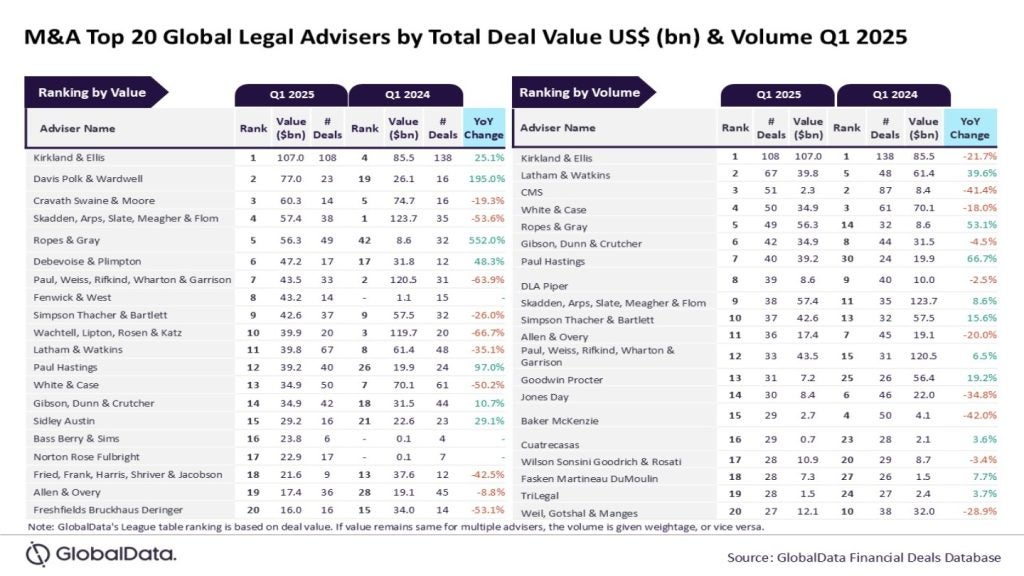Artificial intelligence (AI) has been a big topic across the globe in numerous sectors in 2024, including private banking. It is early for the technology, but many are already expecting it to revolutionise financial services. PBI speaks to experts in the sector on what the next year will bring.
Robert Petrocelli, chief technology officer, Pluralsight
Adoption will vary among users of different generations, occupations, and backgrounds. As conversational interfaces are combined with other tech such as voice synthesis, access to technology will become more natural and predictable. This shift away from physical interfaces enables groups that have stereotypically had less facility with tech, such as our seniors.
Ed Challis, head of AI strategy and general manager for communications mining, UiPath
However, the ability to deploy the technology responsibly is still largely immature, with concerns from executives around risk and governance. 2024 will be the year that this perception changes and organisations see AI progress from aspiration to implementation. Effective AI governance is critical for driving strong AI results. If implemented correctly, it can go further than positively affecting productivity and efficiency – it can also enhance an organisation’s risk and governance posture.
2024 will also be one where companies recognise the critical importance of putting people at the center of their AI strategy. We will see greater adoption of human-in-the-loop validation and control measures on AI systems. This will further enable enterprises to take big strides in AI deployment to automate and optimise their processes, while ensuring that they make their staff an important part of the journey.
Nat Natarajan, CPO, G-P
Even more companies will have an AI offering or partnership in the next year and businesses will find themselves in need of a balance between new technologies and the essential human element. The heart of our journey is humanity. Organisations must set strategies where technology complements and supports human work by making it more efficient and scalable rather than replacing it.
Brett Weigl, SVP & GM for Digital, AI & Journey Analytics, Genesys
Job protection and upskilling will take a front seat in government conversations around AI regulations. We expect to see bills focused on ensuring AI is used as an aid to human roles and to be aided by human oversite. This will protect certain roles from displacement, create roles that previously haven’t existed before and, in areas where it’s more efficient and effective to deploy AI, ensure employees are upskilled to oversee the technology.
Dan Lawyer, chief product officer, Lucid Software
More of the time spent by humans on projects will need to be focused on creative action, while AI will provide actionable insights and data. Teams will be able to make decisions faster by exploring trends before fully committing to them and discovering if an idea could flourish or flop in the future.
Justin Falck, director, product management, Carbon Black
AI is already helping the cybersecurity industry close the talent gap and automate basic functions, leading to increased efficacy and empowering greater critical thinking. One of the greatest opportunities presented by this paradigm shift is the ability for defenders to refocus their efforts on activities, like threat hunting, that can have greater, positive impact on their environments. As more activities are taken over by AI, demand for these sophisticated defenders will increase exponentially.
Babak Hodjat, CTO of AI, Cognizant
We’ll start to see more of specialised and orchestrated AI agents deployed to perform critical, specialised tasks – like updating CRM systems, analysing and responding to audio recordings from customer service calls, enabling a conversational interface for an ERP system, sustainable land use management, or augmenting and improving marketing budget decisions.
John Cannava, chief information officer, Ping Identity
In 2024, CIOs will become AI leaders, collaborating closely with the CISO, CHRO and Legal to ensure continued secure and ethical use of AI in internal processes and external innovations. We’ll also see the emergence of new C-suite roles, like Chief AI Officer, who will partner with CIOs to ensure AI adoption continues to grow and emerging regulations are adhered to across the enterprise.
Dr. Sebastian Schmerl, regional vice president, security services EMEA, Arctic Wolf.
AI tools such as ChatGPT are becoming more and more powerful also plays into the hands of cyber attackers. By perfecting the creation of individually tailored and personalised emails in the victim’s native language, phishing emails appear even more genuine. The embedding of deep fakes in video telephony or fraudulent calls is also on the rise and will be used more and more extensively in the future: companies must not lose touch here and must stay on the ball with AI technologies.
Lavi Lazarovitz, head of security research, Cyberark Labs
If organisations are actively adopting GenAI, they should consider training their models on defensive as well as adversarial samples into the training prompts to identify malicious behaviour. Organisations must consider adopting model stress testing and model performance capabilities to add security capabilities to their AI-models.
Andy Whitehurst, chief technology officer, Sopra Steria UK
In 2024, we’ll move beyond the initial hype surrounding AI and towards more mainstream adoption. Businesses will begin thinking about genuine business and end-user focused use cases for the technology in their industry and how concepts like Generative AI can begin to augment – rather than completely replace – day-to-day operations, as part of their journey towards hyper-automation.
Phillip O’Neill, financial services director (Europe), Kin + Carta
The feeling is that we are moving beyond the hype and entering a new phase of understanding when it comes to generative AI;2024 will be the year in which we start to see concrete examples of how the technology can impact financial services. But will customers care? That depends…
Whilst intelligent AI powered experiences may delight the customers, they will still be more concerned with how your use of AI will assist their financial security.
Implementing AI technology offers the opportunity to deliver enhanced and intelligent experiences to customers that help them in achieving their financial goals. It’s also equally important to maintain trust that customer data is being used in a safe way while doing so. For example, using AI to optimise the data that financial institutions have on file and put it at the fingertips of employees in an accessible format will allow them to cross-sell products in a more customised and relevant way.
And by eliminating the more menial elements of data admin, it frees up more time for staff to make more meaningful connections with their customers to help create a more positive and secure banking experience.
Richard Bassett, VP digital & analytics, NICE
Generative AI has taken the world by storm and so in 2024 we will see an increase in AI adoption across all UK businesses – big and small. Banks and consumer-facing financial services will be among those taking the next step and implementing AI solutions at scale – particularly in customer experience. Most firms have invested significant time and resources into exploring AI this year as it represents a major opportunity to transform the way they connect with customers as well as boost efficiency across the business. Next year, expect to see more innovative, seamless, and digital customer experiences from banks across the UK.
Alexey Afanassievskiy, executive director and head of portfolio management, Mind Money
The realm of banking trends for 2024, a notable shift is underway—farewell to the era of routine roles, particularly the decline of lower- and middle-level analysts often referred to as “office plankton”. The landscape of fundamental analysis, once a labour-intensive human job, has transformed significantly with the advent of AI, notably ChatGPT. Now, obtaining in-depth analyses of companies, product markets, or sectors no longer demands personal immersion, and the time required has drastically reduced compared to traditional methods. This transformation predominantly affects lower-tier personnel, while heads of analytics departments are expected, on the contrary, to be in greater demand.
Consequently, the number of vacancies in analytical departments is likely to decrease.
Another anticipated but gradual shift involves the replacement of personnel in call centres. Research indicates that as of today, individuals, upon realising they are interacting with a robot, tend to disengage. The widespread integration of virtual assistants or agents could substantially cut staffing costs for call centres, sales, and client management. However, the noticeable impact of this trend on banking businesses may surface around 2025-26, but preliminary steps will unfold in 2024.
The preceding year, 2023, witnessed the emergence of commercially successful and credible virtual fashion models and influencers on social networks. Looking ahead, a fascinating process is on the horizon — customised virtual managers for each client, adapting not just in communication but also in appearance. While the goal is to enhance the effectiveness of selling products like loans or insurance, the AI-driven personalised virtual manager seeks to connect with clients on a deeper level. While this may not be an immediate reality in 2024, the groundwork for such advancements is underway.
Max Lehmann, SVP & head of enterprise growth, Nium
Whilst generative AI has a long way to go until it is fully regulated and integrated in financial services, its application will drive cross-border payment innovation forwards in 2024 and beyond.
When thinking about global payments, AI can be used to optimise treasury operations, especially FX exposure. Currently, currency conversion rates can fluctuate significantly, making it challenging for businesses and individuals to predict the cost of their transactions and how much liquidity is needed. AI algorithms can analyse vast amounts of market data, including economic indicators and news events, to predict future exchange rates with greater accuracy and then act on it by automatically buying, holding and selling currency positions. This will allow businesses to make informed decisions and significantly improve their financial exposure and liquidity pools.
Another area that will see tremendous upside is transaction fraud monitoring. Already today, AI-powered fraud detection systems can analyse vast amounts of transaction data in real-time, identifying patterns and anomalies that may indicate fraudulent behavior and enhance security by flagging those transactions. Soon, however, generative AI will be able to react instantly and write rules and code to counter fraudulent attempts and patterns in real-time without human intervention.








